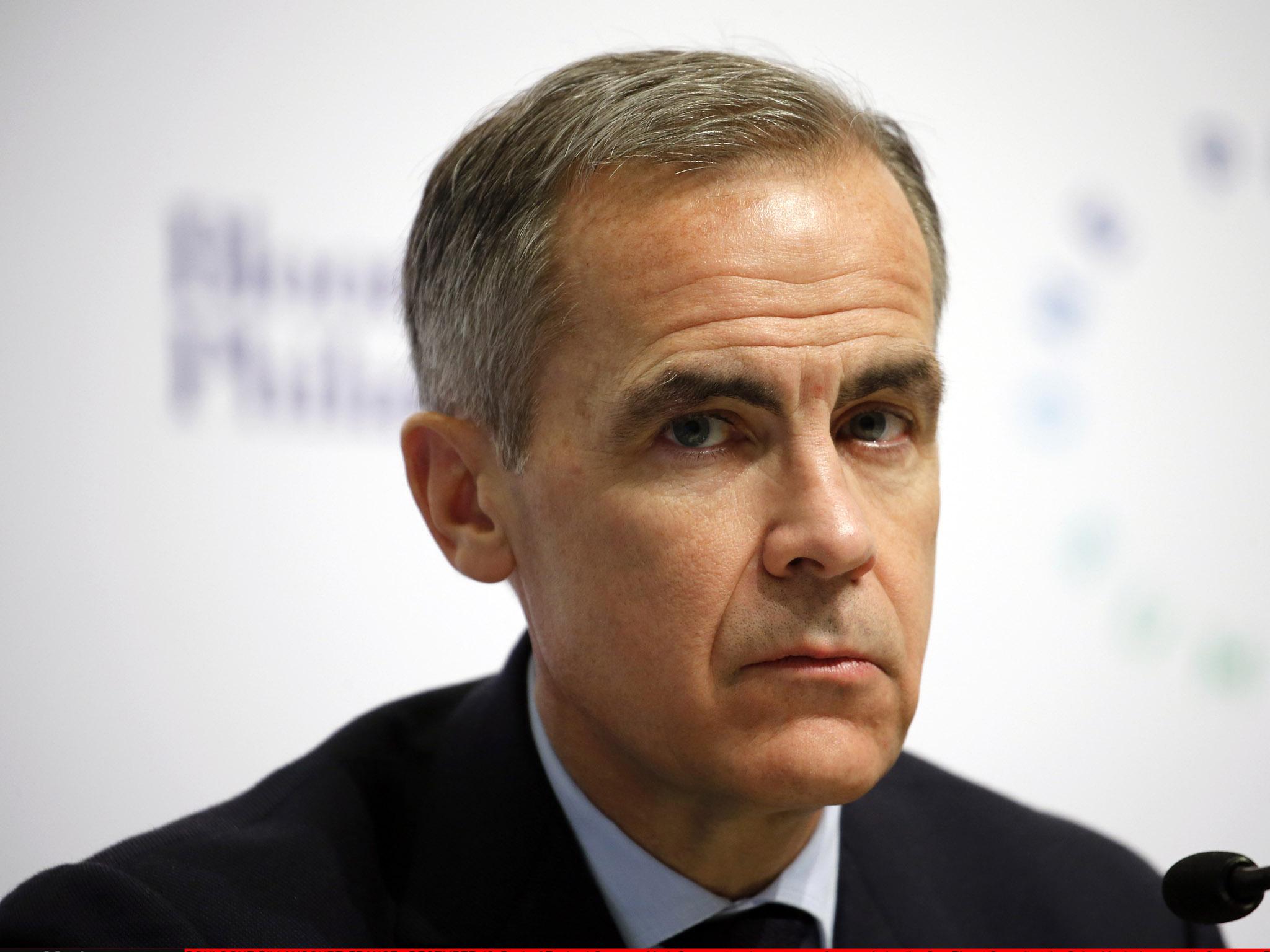The Bank of England’s interest rate announcement puts more pressure on hardworking families
The Bank of England rates at around 2 per cent by the time the UK leaves the EU will be a historically low level, and the degree of tightening envisaged is extremely modest by any standards

By the usual standards of central banks, the Bank of England’s warning that monetary policy will “need to be tightened somewhat earlier and by a somewhat greater extent over the forecast period” was unusually blunt – the central banker’s equivalent of dishing out a biff on the chin.
In plain language it means that interest rates will be going up by more and more often than previously assumed. That means higher mortgage rates and borrowing generally and, thus, a further squeeze on already straitened household finances.
To that extent it is certainly not good news, though stock markets took the surprising change in policy more or less in their stride. The Bank is plainly concerned about the medium-term prospects for inflation, currently running a little over the Bank’s 2 per cent target, and the best way to bring price rises down is to reduce household spending so that retailers cannot sustain price rises. All of that will mean a wide dampening effect on the economy.
The good news, though well-disguised, is that the economy is set to grow at such a clip that rate rises on this scale are deemed necessary in order to cool an economy in danger of overheating. While it not might not feel all that hot to many hardworking families, to borrow the fashionable political phrase, it is nonetheless the case: employment, output and confidence are all stronger than might be assumed. In the UK, as in the US, even wages are showing signs of life now. It is these hard facts that the Bank has given due weigh to. It is difficult to criticise the judgement on its own terms, but there is one obvious risk with this path.
As ever, Brexit overshadows everything, and the Bank’s two-year horizon coincides with the first stages of what may turn out to be a very hard Brexit indeed. As the Government’s now published estimates of the Brexit effect on the economy illustrate, the loss of trade with Europe on any scale will mean lower growth than might otherwise be expected. Only the powerful wave of synchronised global growth among every advanced and all emerging economy will save the UK economy from outright recession and keep it expanding, though at a modest rate compared to our European neighbours.
As an unusually open economy, even after Brexit, the UK is crucially affected by worldwide economic trends. This, again, will be a continuing factor in the Bank’s decision making. The prospect of a further slide in sterling post-Brexit may also, in time, push the Bank towards higher rates. The remarkable expansion of shale oil production in the United States, in purely economic rather than environmental terms, will tend to push the price of oil lower, and with it almost everything else.
Still, even Bank rates at around 2 per cent by the time the UK leaves the EU will be a historically low level, and the degree of tightening envisaged by the Bank is extremely modest by any standards. It represents part of a normalisation on interest rates that has to come sooner or later – we have already enjoyed a decade of ultra-low Bank rates, albeit not always reflected in the commercial rates charged by the banks. Having, understandably, erred on the side of fear during the Brexit referendum and after, and symbolically with the cut to 0.25 per cent in August 2016, the Bank seems now to be tacking in the other, more confident direction.
The data speaks for itself, but the Bank’s economists know only too well how unpredictable an unprecedented move such as Brexit will prove, and the dangers of overcompensating when setting rates in such an unusual environment.
It certainly seems that Governor Mark Carney and his colleagues have not been spooked by the turbulence in equity markets over the last week or so. They are right to ignore stock market “corrections”. Plainly they are being as objective as they can about economic trends, but are they perhaps unconsciously becoming a little too bullish in their outlook for the post Brexit economy?

Join our commenting forum
Join thought-provoking conversations, follow other Independent readers and see their replies